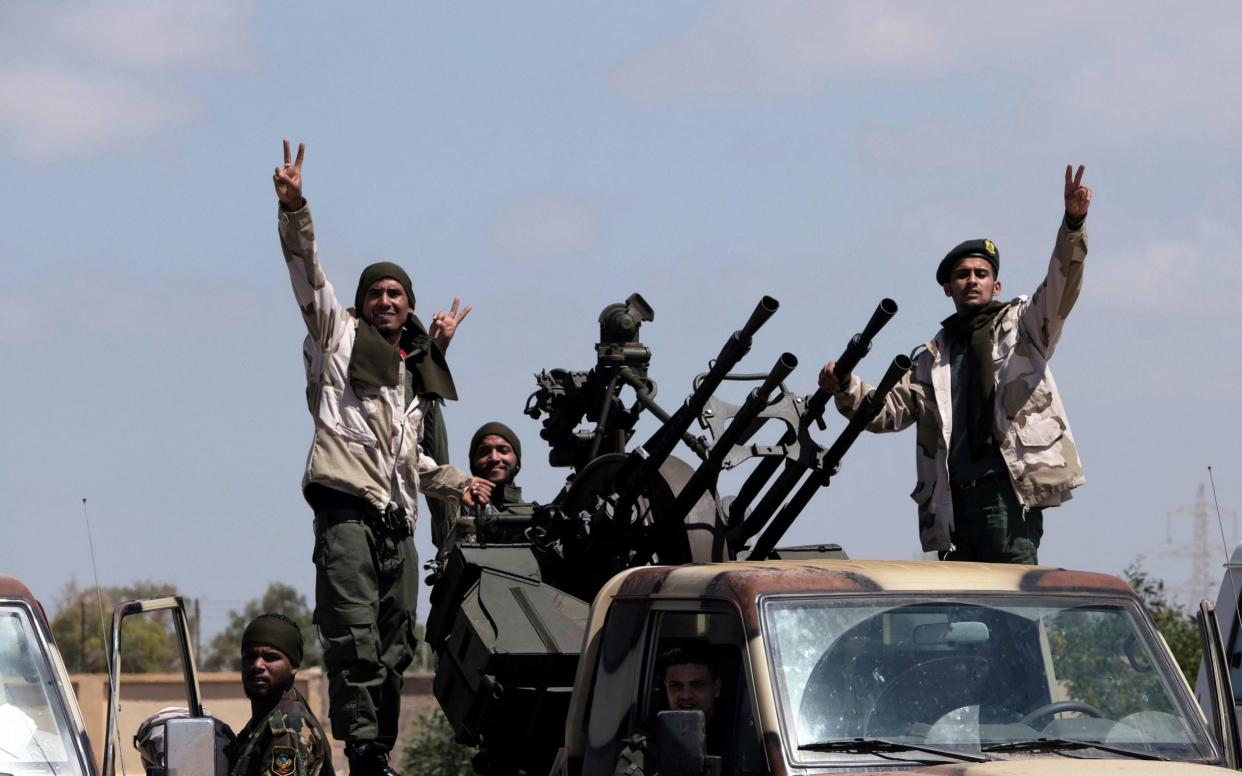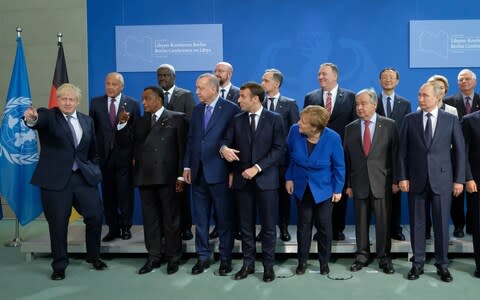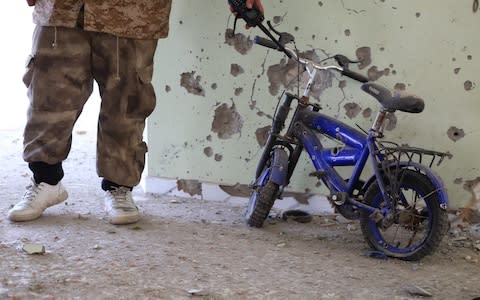Haftar chokes off oil Libya's oil production as fighting continues

Khalifa Haftar, the warlord besieging Libya's UN-backed government, has choked off the country's oil exports in defiance of a shaky international ceasefire deal endorsed by international powers over the weekend.
Vladimir Putin, Angela Merkel, Boris Johnson and other world leaders met in Berlin on Sunday to repeat demands for a ceasefire but the summit was quickly overshadowed by a fresh crisis over oil.
Despite the fierce fighting between Mr Haftar’s self-styled Libyan National Army and the UN-backed Government of National Accord (GNA), both sides have generally allowed oil production and export to continue.
But in apparent bid to put pressure on the GNA, forces loyal to Mr Haftar have closed ports in the eastern part of the country and shut down a pipeline to two major oil fields in the southwest, effectively choking off oil production.
The National Oil Corporation estimates that output will plummet from 1.2 million barrels per day to just 72,000 barrels per day in a few days’ time if Mr Haftar does not release his grip on the ports and pipeline.

The move caused oil prices to jump to a one-week high although markets appeared to expect that the situation would be resolved soon. Antonio Guterres, the UN secretary general, said he was very worried about the situation.
The GNA is heavily reliant on oil revenues and a prolonged shutdown could severely weaken a government that is already struggling to hold onto the capital Tripoli against a months-long assault by Mr Haftar’s forces.
There were reports of ongoing fighting on the frontlines south of Tripoli on Sunday and Western leaders appeared downbeat on the prospects of putting the ceasefire agreement into force.
"Ensuring that a ceasefire is immediately respected is simply not easy to guarantee," said Mrs Merkel. "But I hope that through today's conference, we have a chance the truce will hold further.”
European leaders have discussed the prospect of sending forces to Libya to oversee the ceasefire but there appeared to be little appetite for deployment unless the ceasefire brought an actual end to the fighting.
“If there is a ceasefire, yes of course, there's a case for us doing what we do very well which is sending experts to monitor the ceasefire,” said Mr Johnson.

EU leaders met Monday to discuss reviving a naval mission intended to ensure that a UN arms embargo against Libya’s warring factions was respected.
Despite the UN prohibition on sending weapons, regional sponsors of both sides of the civil war have flooded the country with weapons.
Turkey has provided arms to the GNA and sent Syrian rebel fighters to aid them in battle while the UAE, Russia, and Egypt have all provided support to Mr Haftar’s forces.
"It's clear that the arms embargo requires high level control and if you want to keep the ceasefire alive someone has to monitor it," said Josep Borrell, the EU foreign policy chief.
Operation Sophia was set up in 2015 to combat people smugglers operating from the Libyan coast and to enforce a UN arms embargo on the warring parties.
It was suspended as a naval mission in March last year after Italy objected to recused migrants being landed in its ports, and is now limited to aerial surveillance.

